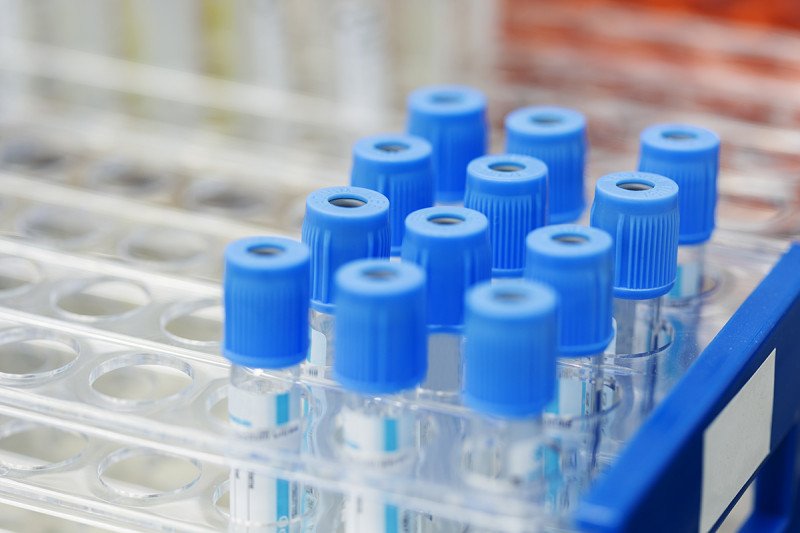
Genetic analysis of blood samples done as part of MSK-IMPACT™ is leading to new findings.
One of the most devastating things that can happen to a person who has survived cancer is later being diagnosed with treatment-related leukemia. This problem is becoming more common as more people are being cured of their disease and survivors are living longer.
Secondary leukemia arises because some treatments for cancer — such as radiation therapy and certain types of chemotherapy — can damage the DNA and lead to mutations. The risk of developing the disease varies greatly, depending on the original cancer and which treatments were given. It can range from less than 0.1% to as high as 3 or 4% in the ten years after treatment.
Now a team of researchers from Memorial Sloan Kettering is reporting that they have identified the presence of certain genetic mutations in the blood that indicate someone is more likely to develop a secondary leukemia. In addition, these mutations are linked to a decreased likelihood that the patient will survive the original cancer, regardless of where the tumor formed in the body.
The findings, which are reported in Cell Stem Cell, came about thanks to MSK-IMPACT™, a test that looks for gene mutations in a patient’s tumor and may guide the choice of therapy.
“MSK-IMPACT compares DNA from a patient’s tumor and from noncancerous blood cells to identify tumor-specific mutations that might be targeted with drugs. From the time we started MSK-IMPACT testing in 2014, we noticed that some patients had acquired cancer-related genetic mutations in their blood that weren’t in the tumors,” says Michael Berger, an Associate Director of the Marie-Josée and Henry R. Kravis Center for Molecular Oncology and one of the researchers who developed the test. “Not only were these mutations in the blood but they were known to be associated with leukemia. We decided to talk to Ross Levine about what this might mean.”
A Collaboration Leads to Answers
Dr. Levine, a physician-scientist in MSK’s Human Oncology and Pathogenesis Program and Director of the Center for Hematologic Malignancies, focuses on studying genes that play a role in blood cancers, such as leukemia. In addition, he was one of the first researchers to report on a phenomenon called clonal hematopoiesis (CH).
CH occurs when hematopoietic stem cells — the cells that give rise to all types of blood cells — form a subpopulation of cells that is genetically distinct from the rest of the blood stem cells. In the current study, the researchers found that 25% of cancer patients had CH, a higher number than had previously been observed, and that 4.5% of them carried mutations known to drive the formation of leukemia.
Assessing the Risk
“It’s exciting to us because it suggests this is a common phenomenon, and one that we need to understand more,” Dr. Levine says. “Only a small subset of patients with these mutations subsequently develop leukemia, so we need to do more research to understand how different mutations impact the risk of leukemia and to develop clinical tools to be able to predict who is at risk.”
CH is not unique to people with cancer — it may arise in people who are completely healthy. Previous studies have shown that the older people get, the more likely they are to have these genetically unique subpopulations of cells in their blood. This makes sense because leukemia is more common in older people.
“These findings don’t give us any definitive answers, but they point to a direction where we can begin to ask new questions,” Dr. Levine adds. “This type of research brings together researchers with many different areas of expertise, and it’s the collaborative nature of MSK that made it possible.”







